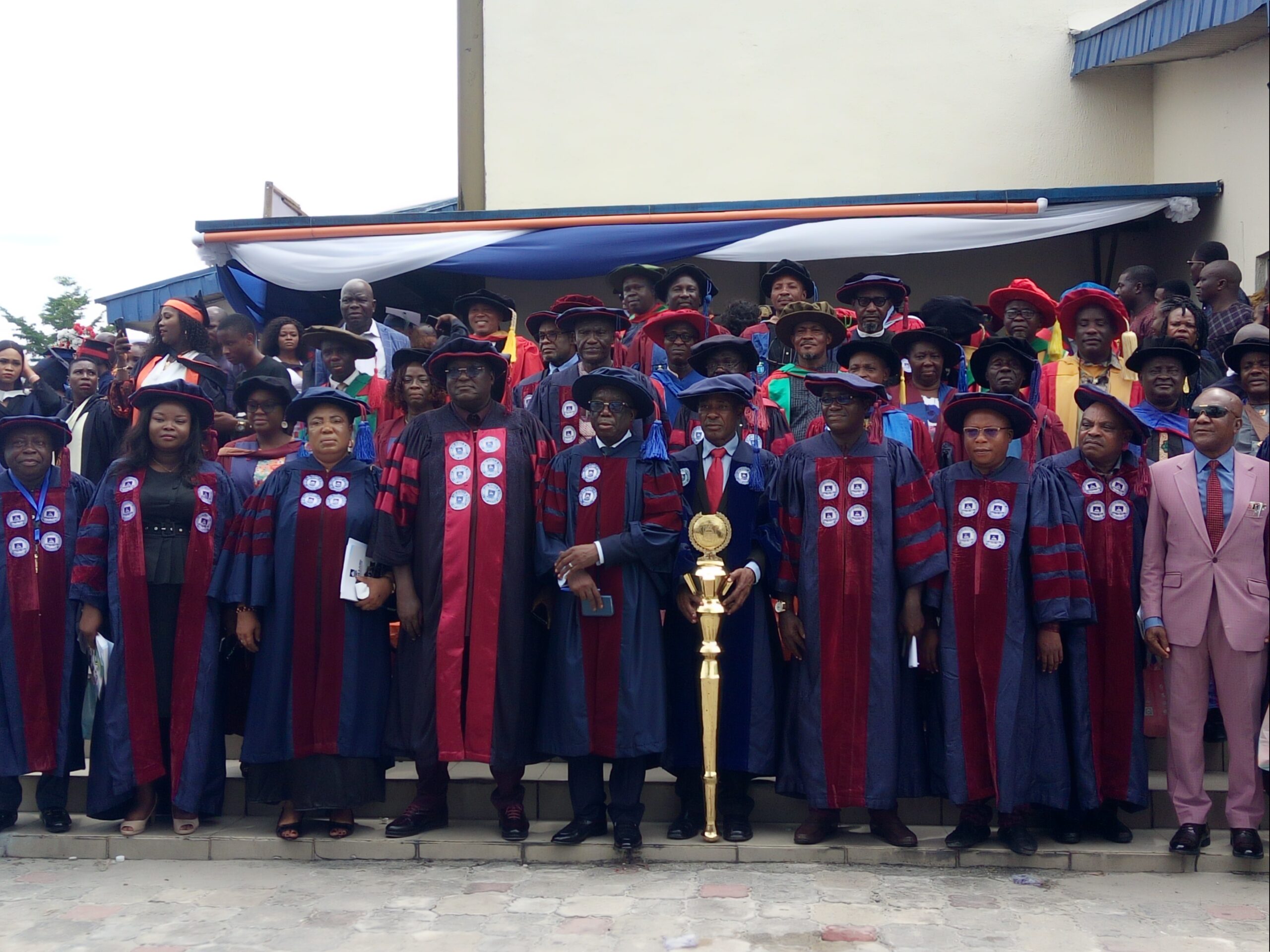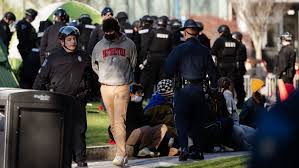Education
UN Urges Investment In Children’s Education
The United Nations (UN) Secretary-General, Ban Ki-moon, has called for stepped-up investment in the education of the world’s 1.8 billion young people to encourage peace-building.
He said in New York, at the General Assembly high-level forum on the Culture of Peace, that the vast majority of the world’s 1.8 billion young people yearn for peace, security and development, but must achieve this through strategic education and re-orientation.
“That is why I am calling for giving young people a seat at the negotiating table.
“It is time to invest in young people as peace-builders. They can make massive contributions to lasting stability,” he said.
The secretary-general also highlighted Syria as “the world’s worst humanitarian crisis today.”
“I have condemned the parties especially the government of Syria for reported grave violations of human rights and international humanitarian law that may amount to war crimes and crimes against humanity,” he said.
Ki-Moon said there is need for political will and funds and challenged all those with influence to rise and work for the greater good of the region and the world.
He said the meeting was designed to highlight the importance of implementation of the Declaration and Programme of Action on a Culture of Peace that the Assembly adopted in September 1999.
According to him, there is the need to further strengthen the global movements to promote a culture of peace.
“To be more than just soothing words, the culture of peace demands courageous practice. Our road map is the Declaration and Programme of Action on a Culture of Peace.
“For more than ten years, we have been striving to carry out this action by promoting education, defending human rights and advancing solidarity,” he said.
He cited late Mahatma Gandhi, one of the great leaders of the Indian independence movement, saying: “There will be no lasting peace on earth unless we learn not merely to tolerate but even to respect the other faiths as our own.”
“Mahatma Gandhi proved that the culture of peace can change the course of history.
“Let us carry on this legacy until we end the terrible suffering in our world and establish lasting peace,” he said.
Gandhi’s grandson, Arun Gandhi, who delivered the keynote address at the meeting, shared some of the knowledge he had learned from his grandfather.
“What I learned from grandfather is that each one of us contributes to violence all the time.
“Many times in ways we don’t even know and recognize,” he said.
“Unless we individually transform ourselves and accept a non-violent way of life, we cannot create peace in the world today,’’ he said.
Education
Former VC Advocates Drug Test For University Lecturers

Prof. Muhammad AbdulAziz, the immediate past Vice Chancellor of Abubakar Tafawa Balewa University (ATBU), Bauchi state, has advocated drug tests for lecturers to sanitise the university system.
Mr AbdulAziz stated this in a valedictory speech to the Senate of the University at a handing-over ceremony to his successor, Prof. Sani Kunya, the new acting Vice Chancellor of the institution.
While commending the decision by the Federal Ministry of Education to introduce drug tests for students seeking admission to all universities, he said such tests should be extended to lecturers.
According to him, it would further sanitise the university system and promote sanctity and academic excellence.
“We have discussed with the Federal Ministry of Education and they want to introduce to all universities that before any student would be registered in the universities, he or she must undergo drug tests.
“If students should undergo drug tests, I believe that even some of us, the lecturers, need to undergo the same test so that we know our status.
“We also have to volunteer ourselves to have this test done on us because we have to sanitise the university.
“If the students are to be subjected to drug tests to determine their mental health status, nothing is wrong if the lecturers too are subjected to the same test.
That is the only way to check excesses in the university system,” he said.
Mr AbdulAziz said the modest achievements recorded during his tenure were in the areas of infrastructural development, academic content development and community services.
He said the achievements recorded could not have been made possible without the support of all stakeholders in the system.
He appreciated the federal government for the support rendered to the University through the Federal Ministry of Education and its various agencies like the National Universities Commission and the Tertiary Education Trust Fund.
Read Also:Students to undertake drug test before admission UniAbuja
Also speaking, the new acting VC of the university expressed gratitude to the Senate for finding him worthy of the honour and to the federal government for his confirmation.
“I want to assure you that I will justify the confidence reposed in me by not disappointing you all.
Education
Don Seeks 20%Increased Budget Allocation To Education

A Professor of Economics in the Faculty of Social Sciences University of Port Harcourt, Rivers State, Prof Willie J. Okowa has called on government at all levels to increase her Education sectorial budgetary allocation to twenty percent of their annual budget , saying that such efforts will improve the development of education in the country.
Okowa said each government wether local, state or federal governments should devote an increased proportion of her annual budget to education such that in the next five to ten years , so that we can see at least 20 percent of her budget to the education sector.
He made this call while presenting the 42nd convocation lectures at the just concluded Iaue convocation ceremonies held at the university auditorium in port harcourt, recently.
He posisted that the economy has a nexus with sustainable higher education to the effect that a robust economy plays a key role in the sustainability of higher .education , while a sustainable higher education plays a supportive economic growth and development
“On the hand,a failing economy can hardly support a sustainable higher education”.
According to him ,a growing economy easily provides the finances to fund sustainable higher education while a education provides the relevant skills and the manpower needs required to propel economic growth and development,”of course, The Inadequate provision of higher educational facilities will fail to the manpower needs required by the economy to support its growth and development”
“The ability of an economy to adquately find higher education also depends on the rate of the population ,the higher the rate of growth of population, the more the number of the people that require higher education .Hence ,a rapid population growth puts more pressure on the ability of the economy to adquately fund higher education, irrespective of its performance.”
“Population growth , economic growth and the adequate funding of higher education are therefore intricately interlinked.The adequacy of the funds that an economy provides to finance higher education also depends on how well the managers of our education institutions manage such funds.
If people who lack character , integrity and merit are appointed to helms of affairs institutions,then funds can hardly be adequate .on the other hands ,if people of character, integrity and merit are given such appointments ,then the outcome will be much better” he stated.
The erudite scholar opined that Nigerian universities and colleges are also passing through strange times and outlined outdated laboratories , inadequate classrooms, adding that many students involved in drugs and prostitution.
By: Akujobi Amadi
Education
Bauchi Govt Threatens To Revoke Scholarship Of Unserious Students

The Bauchi State government has cautioned that it will cease payment of external exam fees for Senior Secondary Three, SS3 students found skipping classes.
Commissioner for Education, Jamila Dahiru gave the warning in Bauchi during her school resumption inspection and monitoring visits to some schools on Wednesday.
The Tide’s source recalls that Governor Bala Mohammed earlier allocated N396.9 million for the 2023/2024 external exams of 14,170 students in public schools.
The external examinations paid for included the West African Examination Council, WAEC, the National Examination Council l, NECO, National Board for Arabic and Islamic Studies (NBAIS) and the Joint Admissions and Matriculation Board, JAMB.
However, the Commissioner, who was furious with the low level of attendance of especially the SS3 students in some schools, recounted how she met less than 20 percent of the SS3 students who were around when she visited a particular school.
She stressed the need for students to return to class and prepare diligently, threatening to revoke scholarships for ‘unserious ones.’
Her words: “We just realised that most of these students, after being taught from JSS1 to SS3 and with Gov. Bala Mohammed paying for their external exams, and as soon as they were done with their mock exams, they left school and won’t return until the first day of their external exams.
“It is sad to acknowledge that we are not responsible as parents because I want to believe that they have parents who are seeing them attending schools simply because they are getting ready to just write their external examinations.
“We want to make them come back to class, we want to emphasize that we are investing in the right people because it is just telling us that it is the government that bothers about their education while they don’t care and probably their parents that are allowing them to stay at home also do not care.
-

 Foreign3 days ago
Foreign3 days agoPolice Detain Scores Of US Varsity Students Over Protest
-

 Oil & Energy3 days ago
Oil & Energy3 days agoRenewable Energy Boom With Waste Problem
-

 News3 days ago
News3 days agoNAF Strikes Terrorists In Niger, Economic Saboteurs In N’Delta
-

 Environment3 days ago
Environment3 days agoGroup Advocates End To Plastic Wastes
-
Business3 days ago
‘Women Exclusion From Digital World Costs $1trn Worldwide’
-

 Niger Delta3 days ago
Niger Delta3 days agoCalabar-Itu Road: C’River Set To Compensate Property Owners
-

 Foreign3 days ago
Foreign3 days agoBiden Jabs Trump In Election-Year Toast At White House Correspondents’ Dinner
-

 Oil & Energy3 days ago
Oil & Energy3 days agoPH Refinery: NNPCL Signs Agreement For 100,000bpd-Capacity Facility Construction

